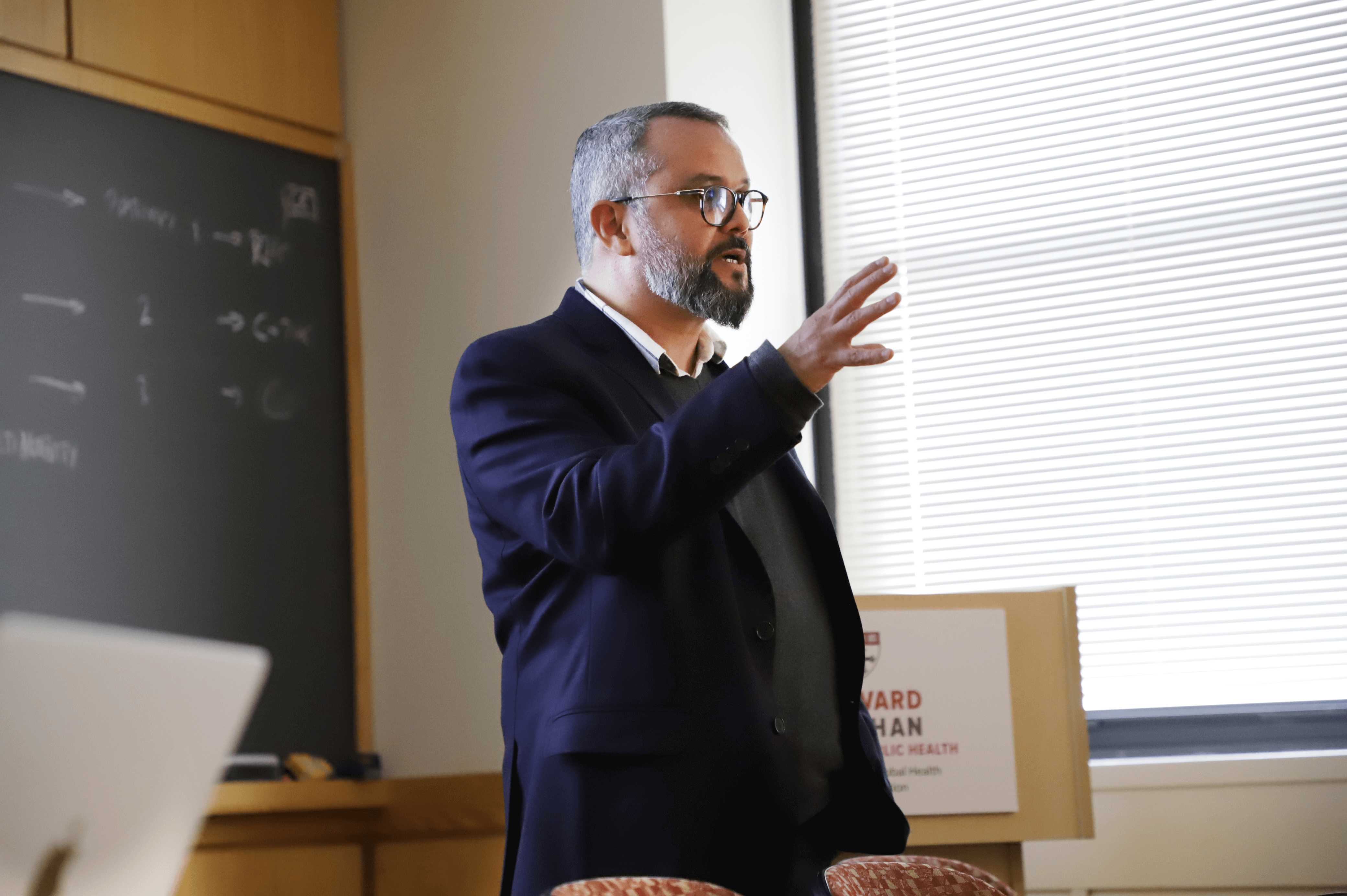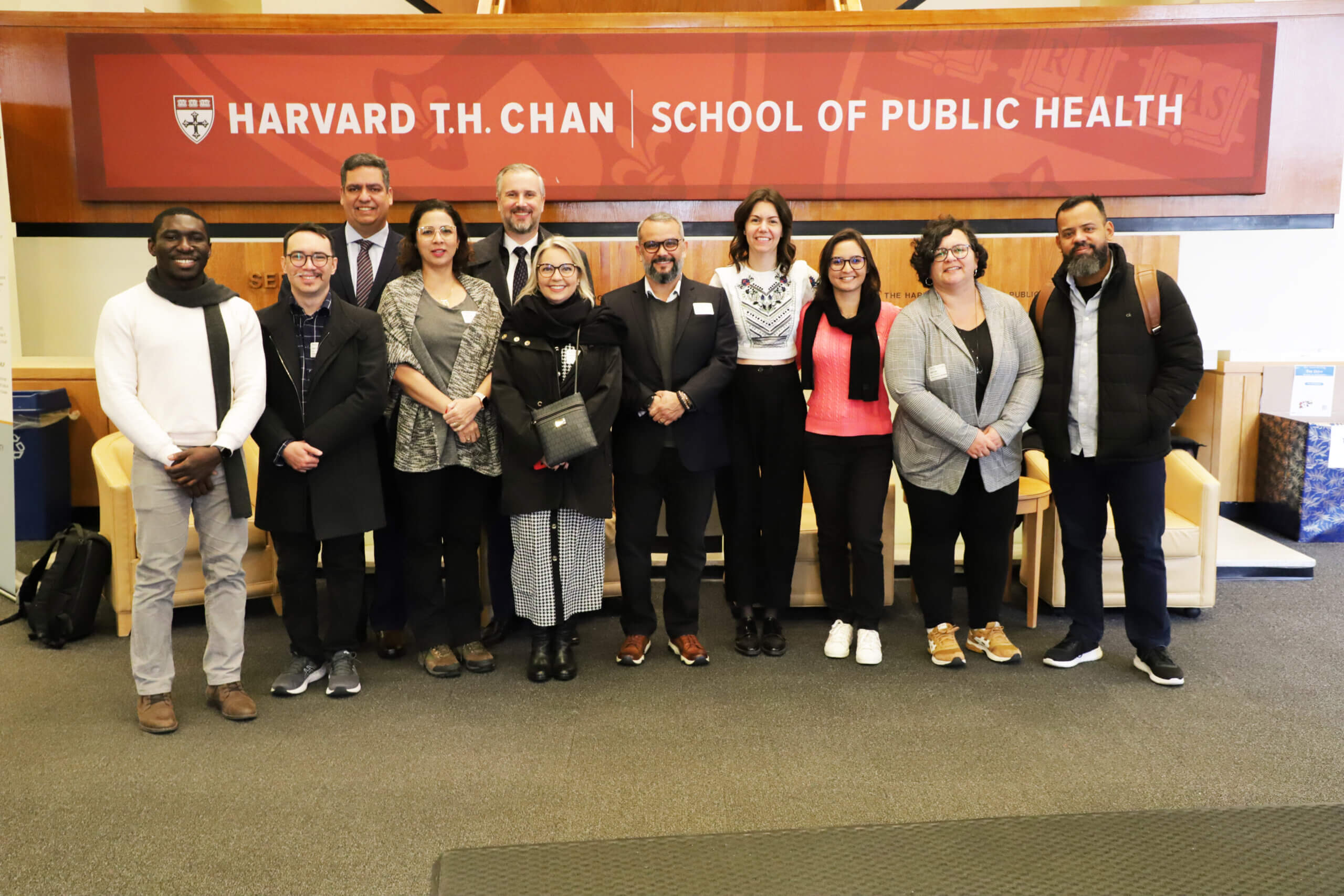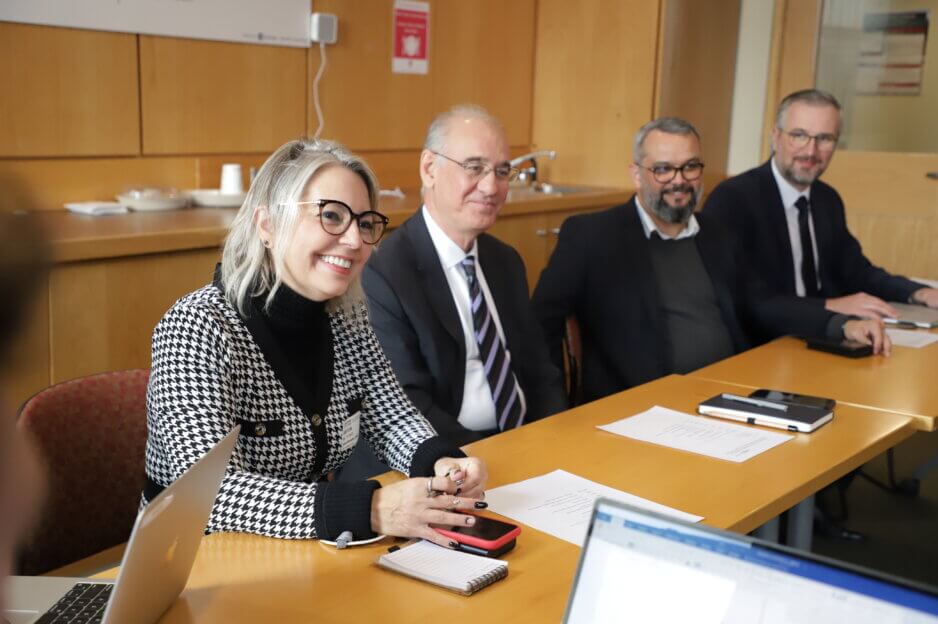Kaline Sampaio (Ascom/LAIS)
Translation by NRI
The improvement of public health systems in Rio Grande do Norte, through strategies defined in international technical-scientific cooperation. This is one of the main results of the international mission carried out by researchers from the Laboratory for Technological Innovation in Health (LAIS/UFRN), and from the State Secretariat of Public Health of Rio Grande do Norte (SESAP) in the United States, where they met with members of the Harvard School of Public Health’s Laboratory for Innovation in Health Systems.
Among the topics presented by the Brazilian team are the results obtained by the technological ecosystem, created by LAIS, during the most critical period of the covid-19 pandemic. Two platforms were highlighted, such as RegulaRN, a platform for the regulation of hospital beds, created during the pandemic and which was crucial to saving lives, through agility and transparency in providing beds to patients affected by covid-19 throughout the state, and RN+Vaccine, aimed at the immunization process of the population.
The presentation of the ecosystem was made by LAIS’ executive director, Prof. Ricardo Valentim, who highlighted the laboratory’s role during the covid-19 pandemic in RN and Brazil. According to Valentim, the systems were fundamental in one of the most critical moments of the pandemic, offering solutions to problems mainly in the area of immunization and regulation of access to health services, when it was necessary to regulate more than 28,000 patients. “With RegulaRN we had a significant decrease in deaths by covid-19 in all age groups after the implementation of protocols, ensuring agility, transparency, and equity in the entire process. These are digital health solutions that were and are effective, they not only improved RN’s health system, but they both also saved lives,” he said.
The debate was expanded with the participation of the assistant secretary of Health of Rio Grande do Norte, Lyane Ramalho, who talked about the public health actions in RN, describing, for the North American delegation, how the services work in the Potiguar territory, as well as LAIS’s efforts with the state government with the systemsRN+Vaccine, RegulaRN, and, recently, Regula RN Vascular, aimed at regulating the procedures linked to the treatment of vascular diseases, avoiding serious consequences, such as the amputation of limbs.

The presentation impressed the director of the Harvard School of Public Health’s Health Systems Innovation Lab, Prof. Rifat Atun, who recognized the work developed with RegulaRN during the covid-19 pandemic as a successful experience to be followed. “Rio Grande do Norte is clearly a leader, not only in Brazil but in the world, in terms of using digital data to monitor the health system in real-time. The way regulation is being conducted there is innovative and there is a great opportunity to develop the Brazilian health system from the model of the RN government, which can also serve as a model for other countries,” he said.
Among the directions of the meetings are the exchange of researchers for the improvement of regulatory systems and the development of collaborative studies on topics such as covid-19, tuberculosis, syphilis, diseases of the vascular system, and maternal-infant health. For the Harvard School of Public Health researcher, physiotherapist Gabriela Borin, who lives in Chile and works at Harvard’s Polo in Santiago, this broad partnership will open new opportunities for the development of research aimed at improving the health system in Brazil, ensuring greater access for the population, equally and with social justice. “It is a learning opportunity for both sides, because we learn from the research context in Brazil and, from our side, we can contribute with the experience we have as a reference university, so this is an important technical cooperation of mutual learning.”
The Brazilian researchers are confident concerning the success of this partnership between LAIS and Harvard School of Public Health. As part of the mission to the United States, RN’s assistant health secretary, Lyane Ramalho, stressed the importance of the work that will be carried out, strengthening the actions that were implemented in the Potiguar SUS during the last three years of the pandemic, with the implementation of pioneering systems such as RegulaRN and RN+Vaccine, “We will take not only science to our state, but also quality to a health service that is in the vanguard throughout Brazil”.

With all the alignments and promising perspectives, Professor Ricardo Valentim with the certainty that the agenda was fundamental to strengthen a policy for SUS in Rio Grande do Norte, in the period from 2023 to 2026. For LAIS executive director, the week of work in Harvard with professor Rifat and his research team demonstrated the potential of this cooperation, both in the context of global health and in the possibility of contributing to this new phase of management of the Potiguar state government. “This cooperation with Harvard will strengthen the regulation systems as a central axis of digital health, which is fundamental for Brazilian public health. This mission also marks another step taken by LAIS in the internationalization of health innovation actions, always improving the local public health system for the population, and that now aims at the G20, especially to debate the Digital Health theme”, he concluded.
Participation in the G20
But the fruits of cooperation do not stop there. LAIS and the government of RN, in partnership with the Harvard School of Public Health, will participate in a working group in the area of health in the G20, the group of the 20 largest economies in the world. The invitation for Brazilian participation came from Harvard University professor Rifat Atun, who develops studies analyzing the economic aspect of the health area. “It is a great privilege and a pleasure to collaborate with LAIS for so many years, and now we have the opportunity to take it to another level, to a collaborative, horizontal cooperation program in nature. So there will be a great opportunity for researchers, educators, and those involved in public health policy practice to learn and share their experiences, but also to learn from the experience that will be generated as a result of this collaboration,” said Professor Atun, emphasizing that participation in a G20 working group inserts LAIS and RN into digital health discussions around the world.
India currently holds the presidency of the G20, selected to conduct the summit starting in 2023 in the capital New Delhi.





